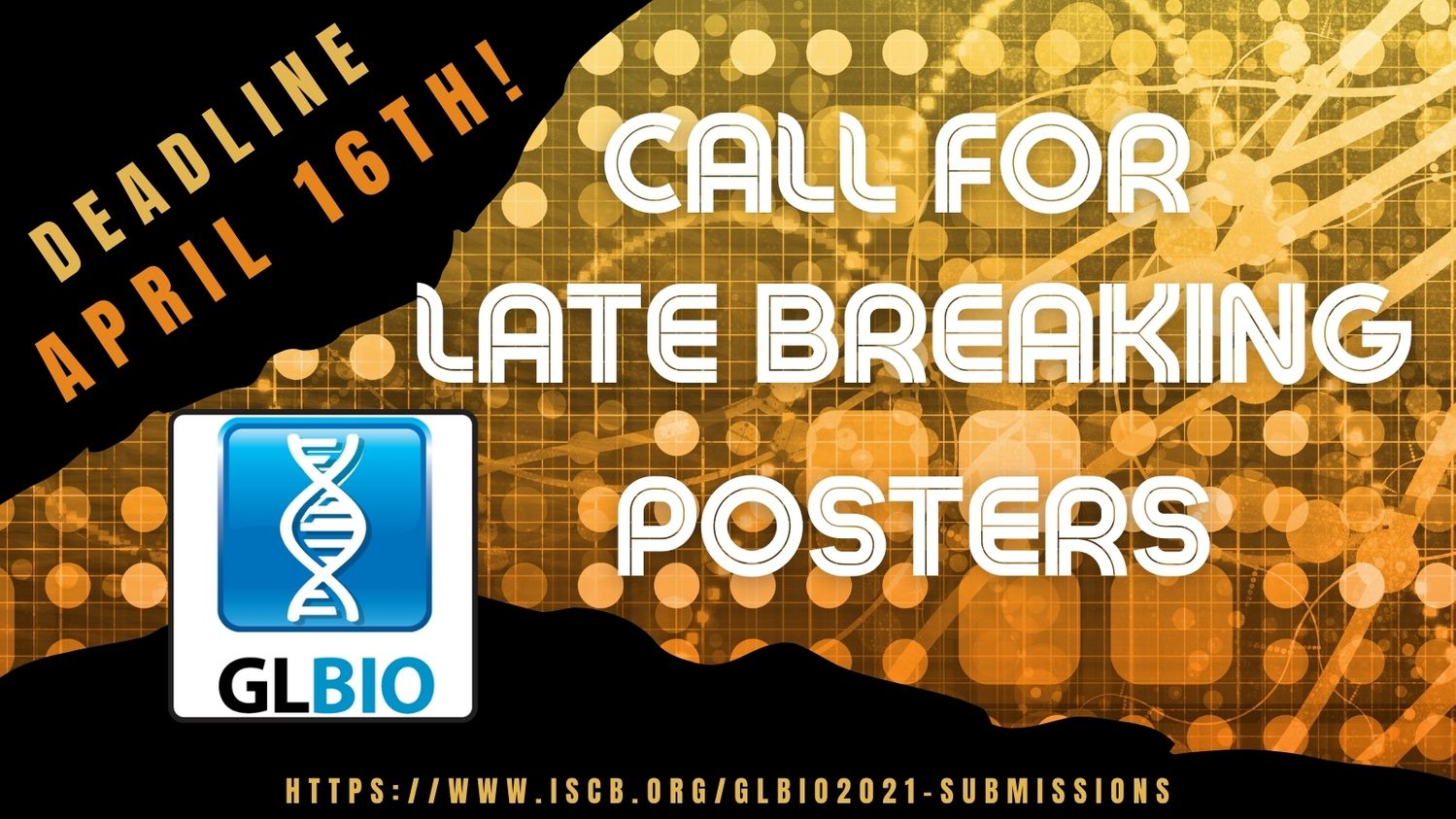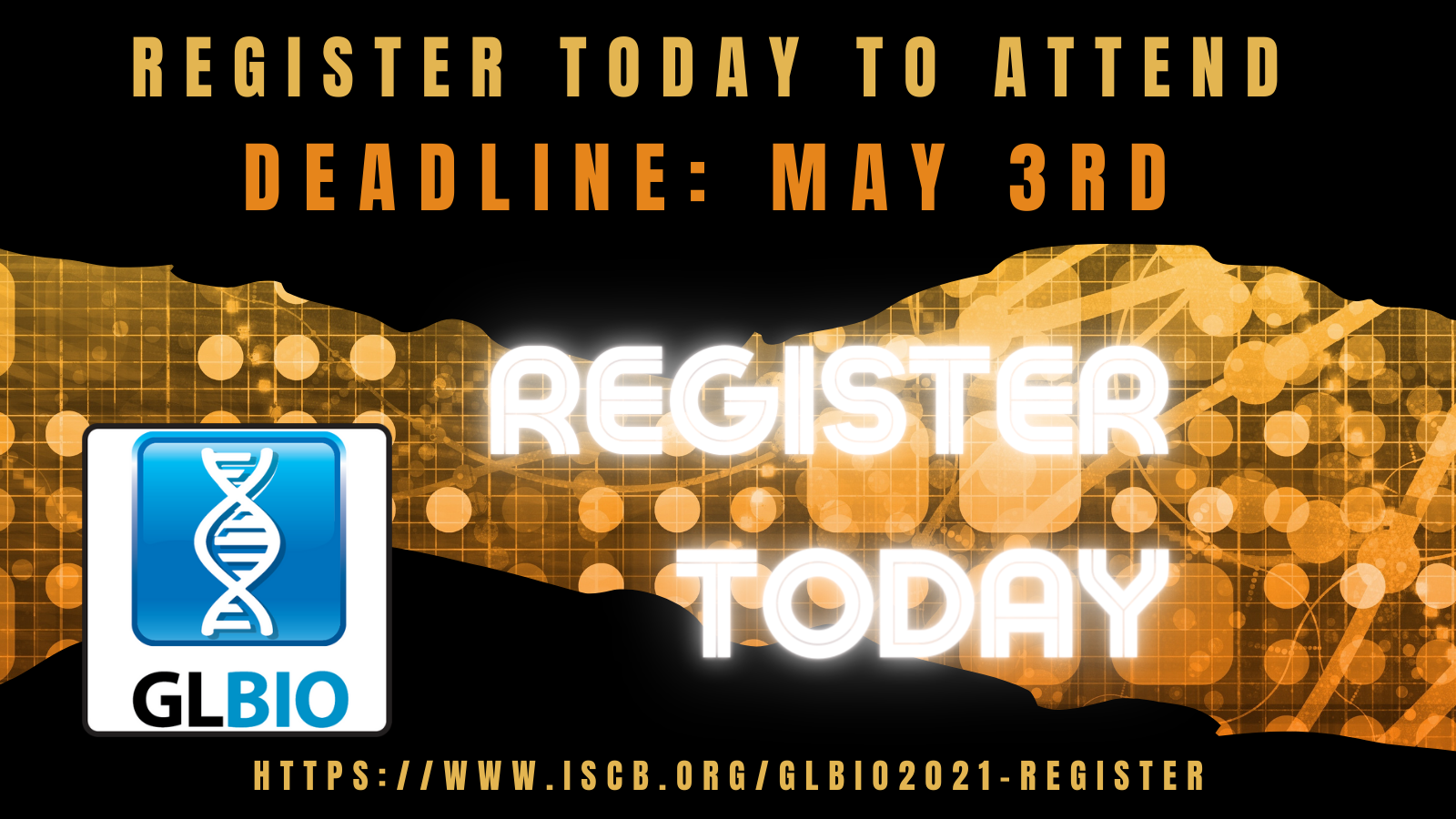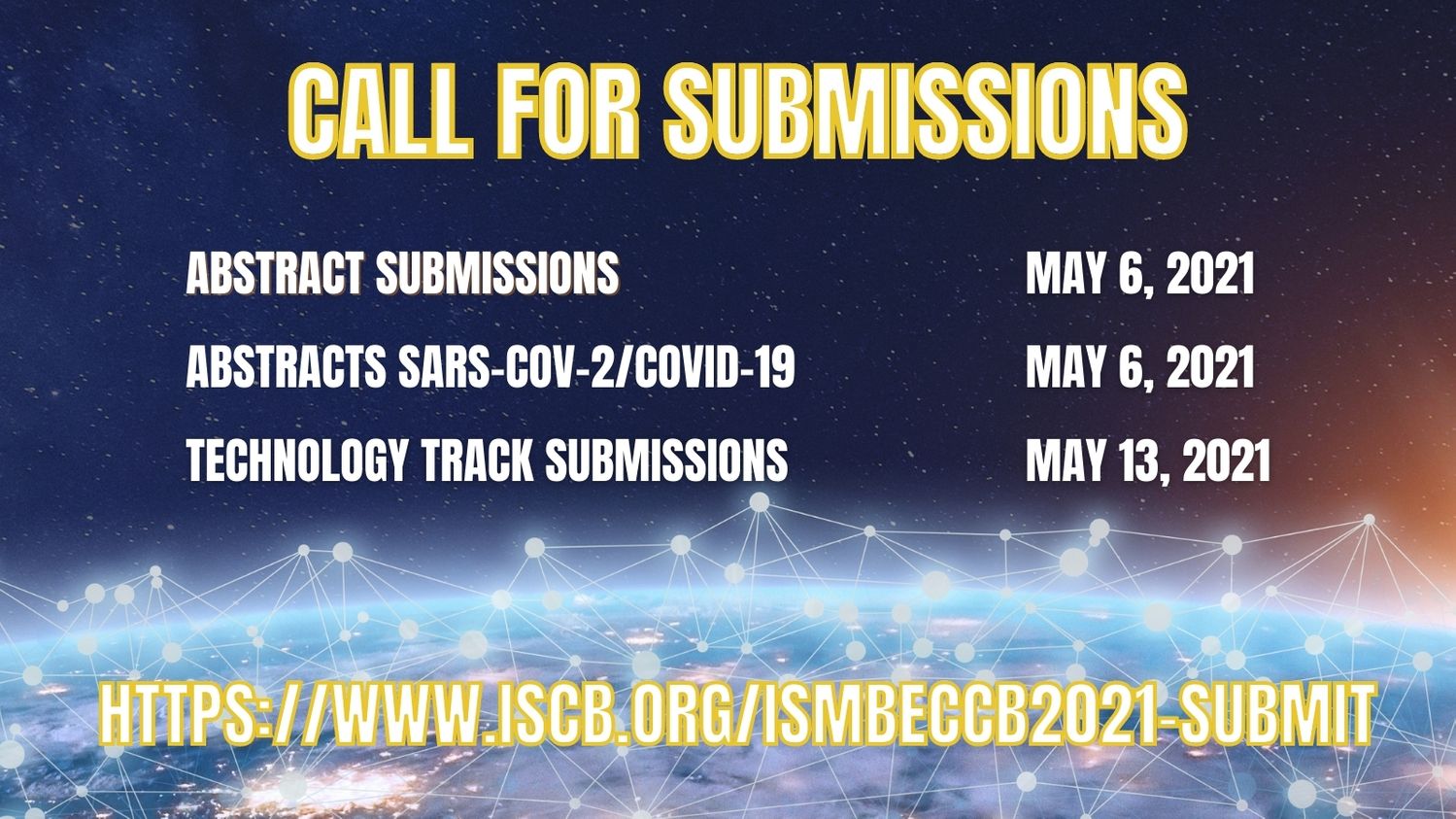| |
Dear ISCB Members and Colleagues,
Don't miss your chance to network, connect and collaborate with your colleagues at these ISCB affiliated conferences!
ISCB members enjoy discounts on all of our affiliated conference registration fees.
Renew your membership or join today, to instantly take advantage of this ISCB Member benefit! |
| |
| |
Computational Genomics
Zoom
Apr 28, 2021 through Apr 28, 2021
Computational and data science technologies are changing the landscape of genetic and genomic research. With resources like cloud computing and big data storage, scientists are able to investigate complex questions and work towards ensuring genetic and genomic advances benefit all. This workshop will feature a series of speakers sharing their expertise through use cases and discussing the funding mechanisms to support research and training programs. Our keynote speaker and successive sessions will provide an overview of computational and data sciences with an outlook on where the fields are headed. Join us on Zoom for a day filled with informative sessions and networking opportunities on Wednesday, April 28th, 2021 from 01:00 p.m. – 06:15- p.m. EST.
ISCB Member Discount: 100 percent |
|
| |
3rd Interdisciplinary Signaling Workshop
Hungary - Visegrad
Jul 19, 2021 through Jul 23, 2021
The aim of this workshop is to offer a cross-disciplinary platform, where key players of signalling research covering, amongst others, topics in modelling, imaging, network biology, precision medicine, protein interactions, and microbiome share experiences, challenges and solutions with early stage scientists (PhDs and postdocs).
ISCB Member Discount: 15 percent |
|
| |
RECOMB 2021
Italy - Padova
Aug 29, 2021 through Sep 01, 2021
RECOMB 2021 is the 25th edition of a series of algorithmic computational biology conferences bridging the areas of computational, mathematical, statistical and biological sciences. The conference features keynote talks by preeminent scientists in life sciences, presentations of ground breaking research in computational biology, selected over the course of a highly-rigorous peer-review process, and poster sessions on the latest research progress.
ISCB Member Discount: None |
|
| |
3rd International Symposium on Mathematical and Computational Oncology (ISMCO’21)
Virtual
Sep 26, 2021 through Sep 28, 2021
The purpose of the International Symposium on Mathematical and Computational Oncology (ISMCO) is to provide a common interdisciplinary forum for mathematicians, scientists, engineers and clinical oncologists throughout the world to present and discuss their latest research findings, ideas, developments and applications in mathematical and computational oncology. In particular, ISMCO aspires to enable the forging of stronger relationships among mathematics and physical sciences, computer science, data science, engineering and oncology with the goal of developing new insights into the pathogenesis and treatment of malignancies.
ISCB Member Discount: 15 percent |
|
| |
| |
Pacific Symposium on Biocomputing (PSB) 2022
United States - HI - Big Island of Hawaii
Jan 03, 2022 through Jan 07, 2022
The Pacific Symposium on Biocomputing (PSB) 2022 is an international, multidisciplinary conference for the presentation and discussion of current research in the theory and application of computational methods in problems of biological significance. Papers and presentations are rigorously peer reviewed and are published in an archival proceedings volume. 2022 marks the 27th year of PSB. PSB 2022 will be held on January 3-7, 2022 at the Fairmont Orchid on the Big Island of Hawaii.
ISCB Member Discount: 50 USD
|
|
| |
 |
| |
|
|












